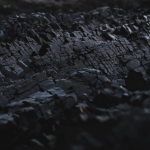Activated carbon charcoal is a fine black powder made from carbon materials that have been processed to make them porous. It has many uses as a filter or trap for chemicals, odors and other substances. One of its most useful properties is its ability to neutralize poisons or toxins when it’s given time to react with them. In the case of home water filters, activated charcoal is used because of this property; it is able to remove chemicals such as bacteria and other toxins from the water. Activated charcoal has so many uses that it’s difficult to list them all here. These are some examples of its advantages.
Water Filters
Activated charcoal filters have been used to treat water for thousands of years. Before the invention of modern water treatment facilities, people used charcoal filters to make water clean enough to drink. These systems are still used in many third-world countries. The modern activated charcoal filters use the same principles as ancient water filters. They have a layer of activated charcoal on which the water trickles down. The bacteria and chemicals are trapped on the charcoal and are removed from the water as it trickles down. The water then flows into a storage tank where it can be used to supply the house’s water needs. In a home water filter, the activated charcoal is usually wrapped in a bag or cartridge. You just need to change the filter cartridge when it becomes clogged with bacteria and chemicals.
Air Filters
Air filters with activated charcoal are used in houses and buildings where air pollution is a problem. In these buildings, there are often harmful gases and particles that are given off by industrial processes, diesel vehicles or other pollution sources. Car fumes, for example, may contain harmful gases such as carbon monoxide, benzene, hydrochloric acid and nitrogen oxides. Activated charcoal air filters are very effective at removing these pollutants from the air. They work in a similar way to water filters, with the charcoal trapping the pollutants that are in the air. There are several different types of activated charcoal air filters, with different levels of effectiveness.
Medical Uses of Activated Charcoal
Activated charcoal has been used in medicine for thousands of years. Today, it’s used in hospitals around the world for emergency treatment of certain types of poisoning. Activated charcoal can be very effective at removing certain poisons from the human body. It is usually given as an emergency treatment when people have overdosed on certain drugs and poisons. It works by attaching itself to the toxins and carrying them out of the body through the digestive tract. For example, people who take too much paracetamol can be given activated charcoal to remove the excess drug from their bodies. This can save their lives by reducing the damage the drug would usually do.
Other Uses of Activated Charcoal
Activated charcoal has so many uses that it’s difficult to list them all. These are just some examples:
- Activated charcoal water filters can be used to clean water for gardening or for aquariums.
- Activated charcoal can be used as a cleaning agent for dirty or greasy objects. It can also be used to clean your teeth!
- Activated charcoal can be used to remove odors from things like smelly shoes or the inside of a fridge. – People have used activated charcoal to remove toxins from contaminated soil.
- Activated charcoal can be used as animal feed or as a fertilizer.
- Activated charcoal can be used to make certain types of carbon fiber. This is used in the manufacturing of sports equipment, musical instruments and high-tech equipment such as computers.
Disadvantages of Using Activated Charcoal Filters
Activated charcoal water filters are very effective at removing impurities from the water. However, they are not very effective at removing inorganic minerals such as calcium or magnesium. These minerals can build up inside the water filter, reducing the amount of water that passes through the filter. This can cause the water filter to operate above capacity, which can cause damage to the filter. Another disadvantage is that activated charcoal filters can taint the taste of the water. This is usually not a problem unless you use a very strong filter.
In conclusion, an activated charcoal is a great choice for many water and air filtration systems. It is especially useful for removing bacteria, viruses, and impurities from water and air. It is easy to use, and can be used in a variety of water and air filtration systems. There are several different types of activated charcoal filters, each with their own strengths and weaknesses.









